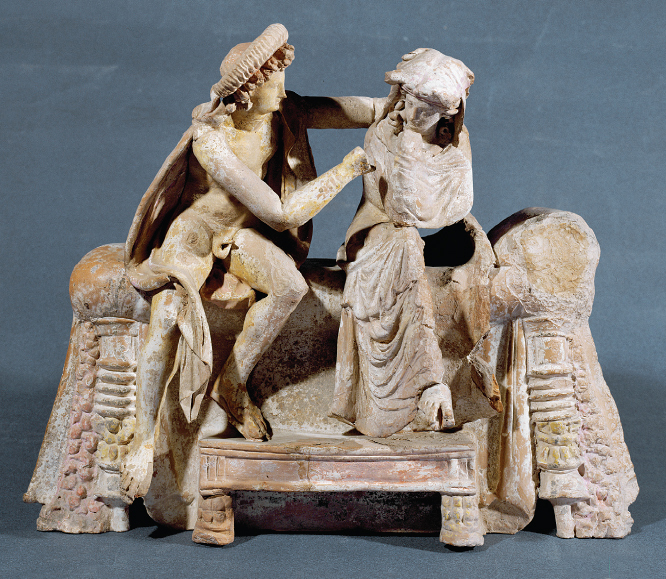How did religion, philosophy, and science develop in the Hellenistic world?
TThe mixing of peoples in the Hellenistic era influenced religion, philosophy, and science. The Hellenistic kings built temples to the old Olympian gods and promoted rituals and ceremonies like those in earlier Greek cities, but new deities also gained prominence. More people turned to mystery religions that blended Greek and non-

Hellenistic Married LifeThis small terra-